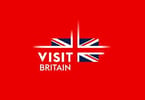The Federal Council of Switzerland, a seven-member board, which serves as Switzerland’s collective head of state, in the decision called “incomprehensible” by Jewish activists, has denied a proposal to prohibit public display of swastika and other Nazi symbols in the country.
Swiss otu ọchịchị argued that, while “shocking” and “very distressing,” displaying hate symbols in public can “only indirectly affect human dignity and public peace,” and that “prevention is better suited than criminal repression” in curbing the spread of extremism.
The kansụl said that such images could be illegal if displayed for “propaganda purposes,” a term that can be decided by authorities on a case-by-case basis but maintained that prevention was the better approach in dealing with most incidents.
It also pointed to Federal Supreme Court case law, which finds it acceptable “that objectionable views are also represented, even if they are untenable for the majority.”
The kansụl’s decision came after it received three separate motions requesting criminal publishment for the display of “Nazi,” “racist,” and “extremist” symbols. The council’s final verdict was not the first of its kind, as it has shot down multiple motions to make the swastika illegal over the last decade.
The ruling infuriated the Swiss Federation of Israelite Communities (SIG), nke na-anọchi anya ya Switzerland’s 20,000 or so Jews.
“This attitude of the Federal Council is incomprehensible,” read a statement from SIG, which argued that because “People who give the Hitler salute in public or use a swastika already represent a well-established anti-Semitic ideology … To believe that they could be dissuaded by a prevention program is a massive misjudgment.”
Switzerland’s neighbor countries maintain much tougher policies on Nazi symbols.
Germany and Austria forbid the display of such symbols, with offenders in both countries facing fines or prison sentences.
France bans the display of Nazi flags, uniforms and insignia in public, along with the symbols of other criminal groups.
IHE Ị GA-Ewepụ na edemede a:
- “This attitude of the Federal Council is incomprehensible,” read a statement from SIG, which argued that because “People who give the Hitler salute in public or use a swastika already represent a well-established anti-Semitic ideology … To believe that they could be dissuaded by a prevention program is a massive misjudgment.
- The Federal Council of Switzerland, a seven-member board, which serves as Switzerland's collective head of state, in the decision called “incomprehensible” by Jewish activists, has denied a proposal to prohibit public display of swastika and other Nazi symbols in the country.
- The council said that such images could be illegal if displayed for “propaganda purposes,” a term that can be decided by authorities on a case-by-case basis but maintained that prevention was the better approach in dealing with most incidents.























